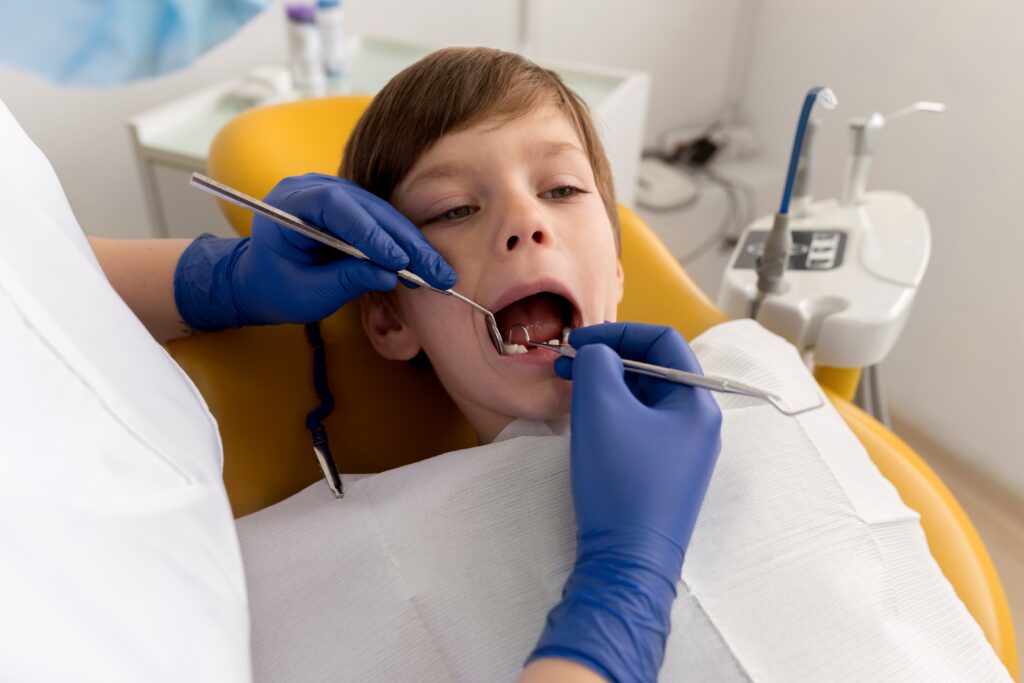As a pediatric dentist, I get to see some of the brightest smiles and hear some of the most thoughtful questions from parents every single day. In this blog series, I’ll be sharing answers to the most common questions I hear in my daily practice, breaking them down into easy-to-read parts. In Part 1, we’ll focus on one of the most important milestones in your child’s oral health journey: their very first dental visit. Whether you’re a new parent navigating teething troubles or simply wondering when to schedule that first check-up, this guide will give you the clarity and
confidence you need.
At what age should my child start routine visits to a dentist?
The first dental visit should occur within six months after the baby’s first tooth appears, but no later than the child’s first birthday. At this time, the dentist can provide or recommend information on baby bottle tooth decay, infant feeding practices, mouth cleaning, teething, pacifier habits. The initial office visit is to help acquaint the child with the dentist. The first visit generally includes a thorough examination of the teeth, jaws, bite, gums, and oral tissues to monitor growth and development, and, if needed, a gentle cleaning. The dentist may demonstrate proper home cleaning, including flossing, and assess the need for fluoride.
My child is nervous before a dental visit. How can I prepare my child for the visit?
If possible, schedule morning appointments, when young children are alert and fresh. Do not ask for an appointment during the child’s nap time as it makes them cranky and irritable. A child can be prepared for the visit by giving him or her a general idea of what to expect. Explain why it is important to go to the dentist. Build excitement and understanding.
Why early visits are important for preventing future problems
The primary goal for early visits is to catch problems early such as tooth decay or bite issues. It also helps build comfort which reduces dental anxiety later. Remember that prevention is simpler and cheaper than extensive treatment.
Your child’s first dental visit is more than just a check-up, it’s the start of building healthy habits, catching problems early, and creating a positive relationship with dental care. By scheduling that visit by your child’s first birthday or within six months of the first tooth, you’re giving them the best start toward a lifetime of strong and happy smiles.
Pediatric Dentist at Dr. Sirajudeen Medical Centre.

